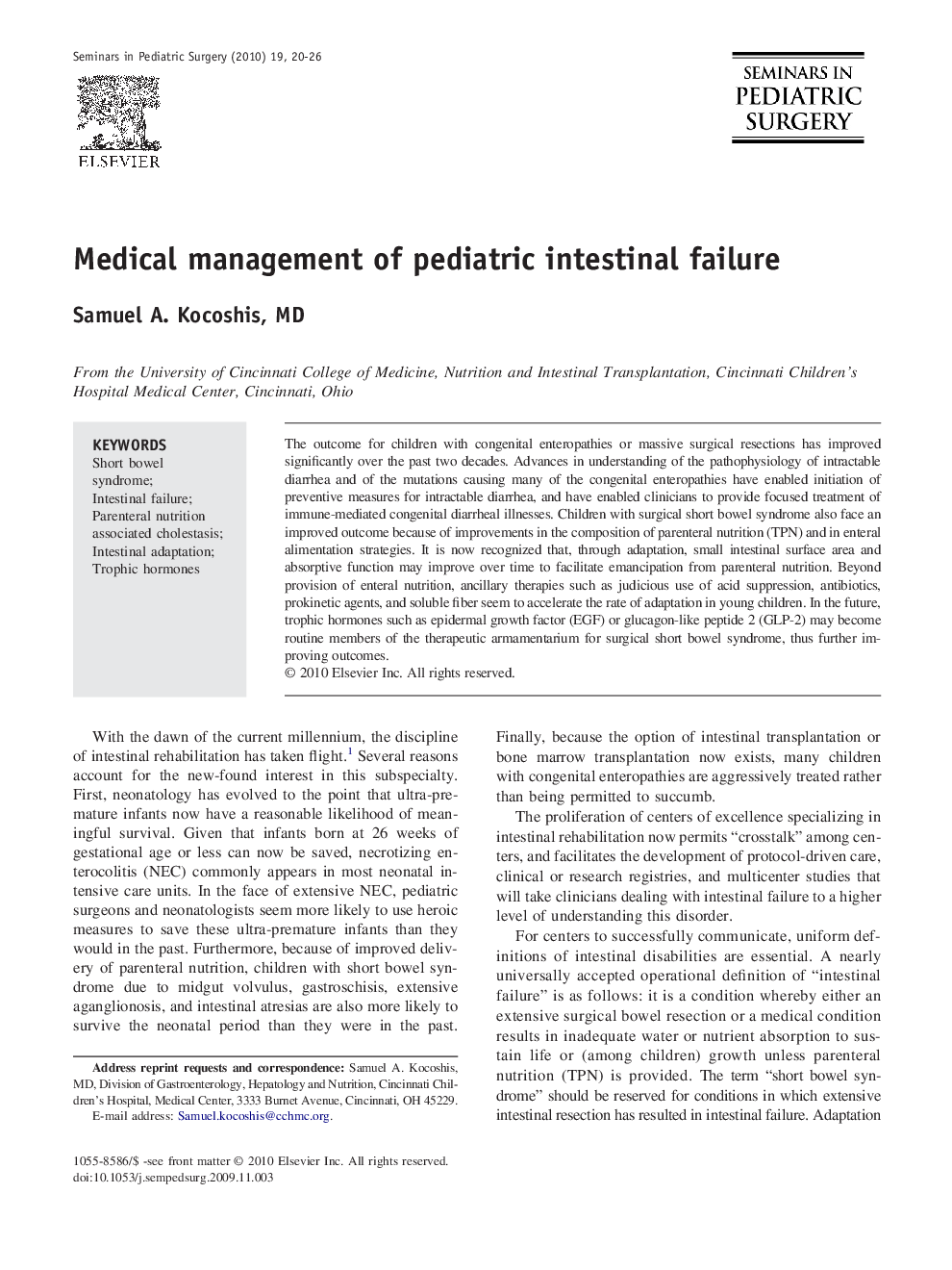| Article ID | Journal | Published Year | Pages | File Type |
|---|---|---|---|---|
| 4176713 | Seminars in Pediatric Surgery | 2010 | 7 Pages |
The outcome for children with congenital enteropathies or massive surgical resections has improved significantly over the past two decades. Advances in understanding of the pathophysiology of intractable diarrhea and of the mutations causing many of the congenital enteropathies have enabled initiation of preventive measures for intractable diarrhea, and have enabled clinicians to provide focused treatment of immune-mediated congenital diarrheal illnesses. Children with surgical short bowel syndrome also face an improved outcome because of improvements in the composition of parenteral nutrition (TPN) and in enteral alimentation strategies. It is now recognized that, through adaptation, small intestinal surface area and absorptive function may improve over time to facilitate emancipation from parenteral nutrition. Beyond provision of enteral nutrition, ancillary therapies such as judicious use of acid suppression, antibiotics, prokinetic agents, and soluble fiber seem to accelerate the rate of adaptation in young children. In the future, trophic hormones such as epidermal growth factor (EGF) or glucagon-like peptide 2 (GLP-2) may become routine members of the therapeutic armamentarium for surgical short bowel syndrome, thus further improving outcomes.
